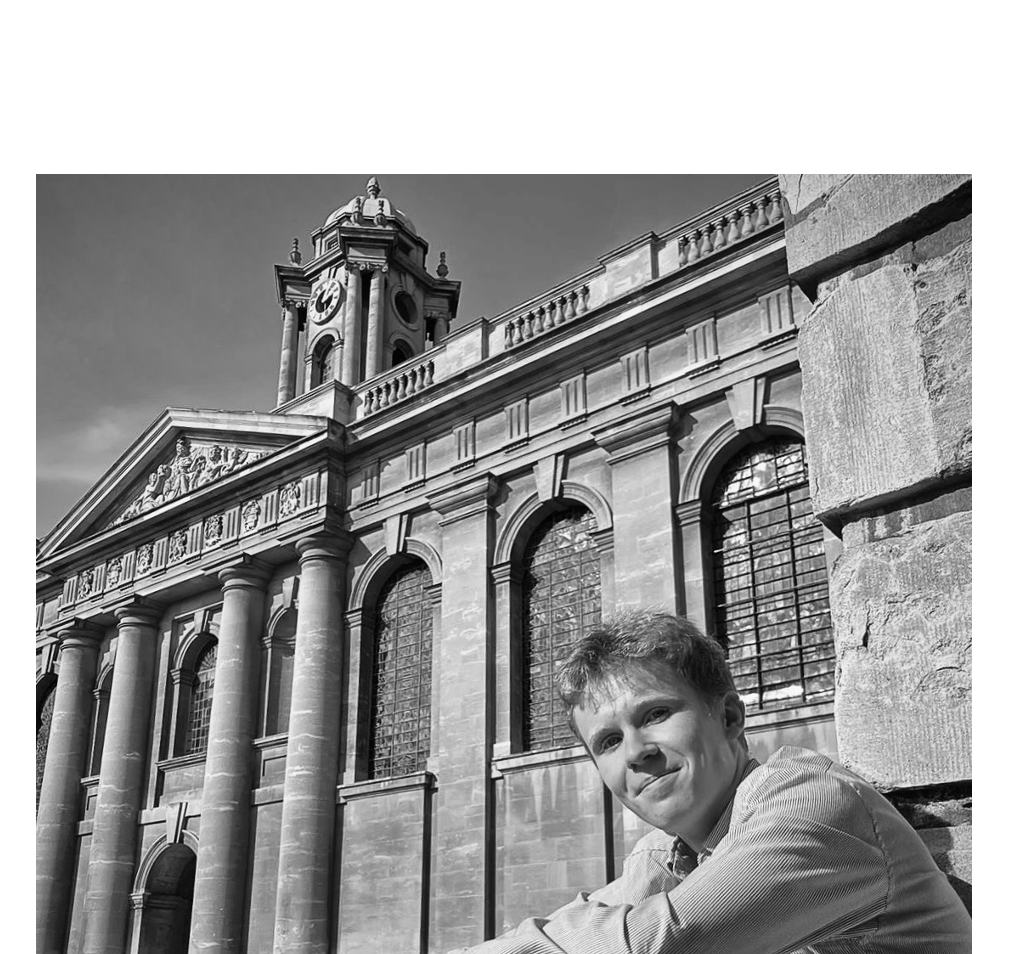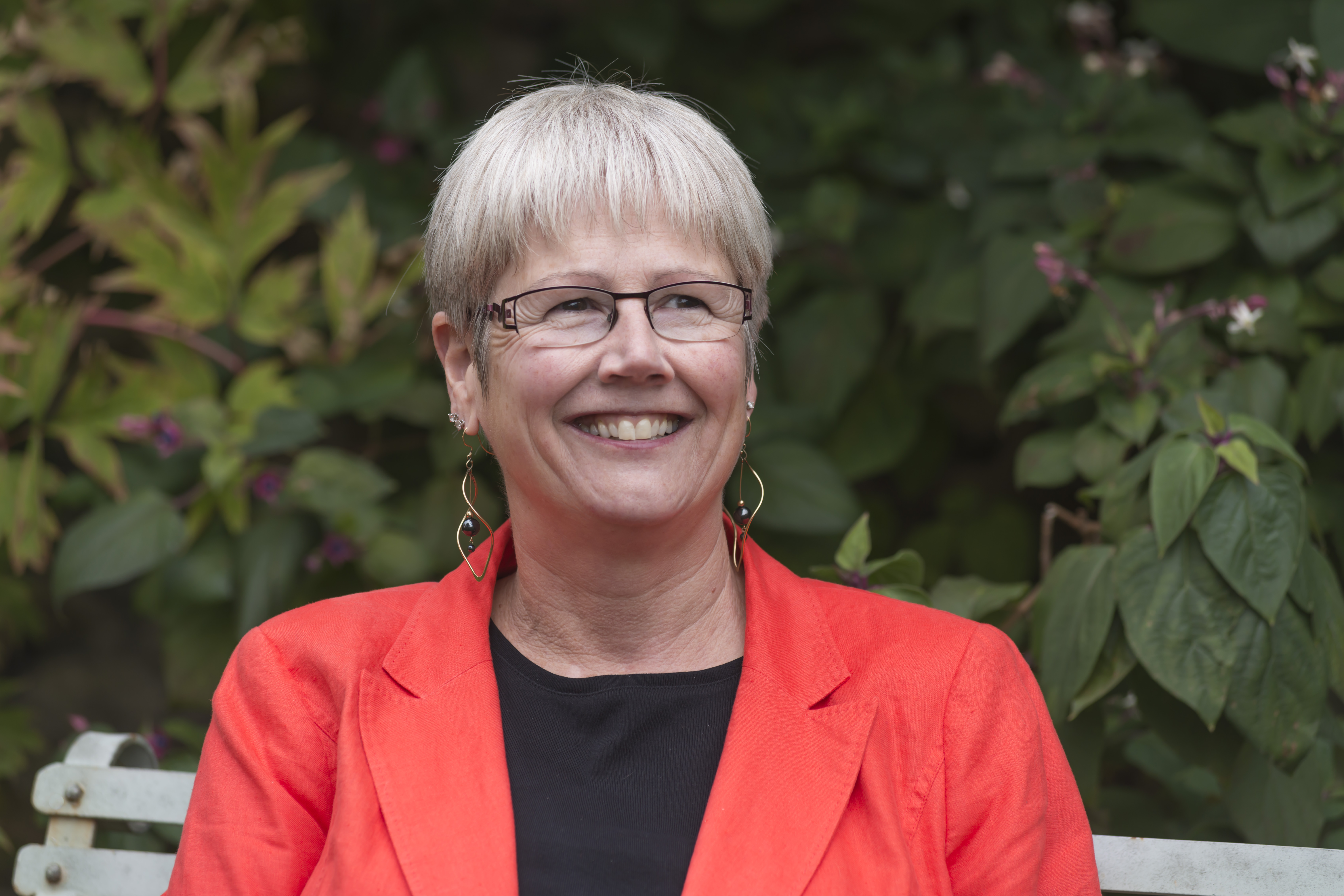The College warmly congratulates 4th-year Medical student Danny McAlea who has received the British Pharmacological Society Clinical Undergraduate Prize for Intercalated Research Project, as well as the University’s Wronker Grant for excellent performance in the Honour School of Medical Sciences. We asked him to tell us more about the work that led to these achievements.
Tell us about the research project that led to the British Pharmacological Society award?
I was based in the Radcliffe Department of Cardiovascular Medicine working with the Reilly Group “Molecular signalling in adverse myocardial remodelling and fibrosis” and investigating molecular mechanisms underlying atrial fibrillation (AF). AF is the most common cardiac arrhythmia, and a significant contributor to mortality. Whilst most treatments for AF focus on restoring normal rhythmicity, what they fail to tackle is the concomitant fibrosis associated with the condition, which acts as a substrate for its progression. My lab had recently identified cardiac myocytes as a major source of calcitonin which was found to act in a paracrine manner on atrial fibroblasts and decrease their activity, thereby reducing atrial fibrosis. However, in AF-patient derived fibroblasts, the calcitonin receptor (CTR) was found to adopt a striking state of internalisation, making fibroblasts refractive to calcitonin and leading to chronically increased fibrotic activity.
My project investigated whether defects in CTR trafficking by filamin A (a cytoskeletal protein) could be responsible for the deranged CTR localisation seen in AF. I also helped with the optimisation of a high throughput small molecule drug-screen to identify small molecules with potential to restore CTR localisation. Through the project I became well versed in a range of wet-lab techniques from primary cell isolation and culture, to transfection, immunostaining, and immunoblotting.
How did you first decide to study Medicine? And why at Queen’s?
Wow – this takes me back to personal statement writing. You make the decision to study medicine at age 15-16 and start running with it from there – I’m so glad I did. Yet even now, four years down the line, this was still the question I left last to write my response to. In Oxford interviews, you never get asked “Why do you want to study medicine?”. I’d always thought that this was because everyone would have their scripted answer ready to repeat in response – and that probably is the case, but maybe it’s also because a whole 40-minute interview wouldn’t be enough time to really explain what motivates you to study medicine. Even at this early stage, it still feels such a privilege to be starting off in medicine and I can’t imagine doing anything else.
I had never visited Oxford (or any other medical school) before applying here, so was at a bit of a loss initially with which college to apply to. When I learnt that Queen’s was founded in 1341 by a Cumbrian (I’m from Cumbria) I thought this was as good a reason as any to apply. I’m so happy I chose Queen’s (and that Queen’s chose me) – I can think of no better place to have spent the last few years and wouldn’t change it for the world.
When I learnt that Queen’s was founded in 1341 by a Cumbrian (I’m from Cumbria) I thought this was as good a reason as any to apply. I’m so happy I chose Queen’s (and that Queen’s chose me) – I can think of no better place to have spent the last few years and wouldn’t change it for the world.
Has studying at Oxford shaped the way you think about medicine?
Definitely. I don’t think I realised how much studying at Oxford would influence my medical education until I began. I think I knew things were going to be different when I started writing my first tutorial essay in Freshers’ week: “To what extent is it possible to predict the structure of a novel protein from its amino acid sequence?”. This couldn’t have been a more fitting start though, as in each aspect of the course we’ve been taught from first principles and to reason an answer – not memorise one. We’re challenged a lot, and always by people who know a lot more about what they’re talking about than almost anybody else. I’ve still got a long way to go, but I feel pretty sure that Oxford, and Queen’s, will remain as unique an experience for the next three years as it’s been for the first three.
In each aspect of the course we’ve been taught from first principles and to reason an answer – not memorise one.
What does a “normal” day look like for you as a medical student?
Well, a normal day now looks a lot different to what it has done for the past three years! Our course is split into two halves: the preclinical (1-3) and clinical (4-6) years. During preclinical, we work towards our BA in Medical Sciences. There’s a lot of lecture+tutorial contact and it’s heavily essay-based with some space for lab work, histology, and prosection along with some ethics+communication sessions. From 2nd year things become a bit less prescriptive when we start our Final Honours School lab-project; 3rd year is then very much led by your interests when you decide which areas of the medical sciences to focus on and we do much more critical analysis of current literature and really get to grips with evaluation of experimental technique and study design. I focussed on cancer and molecular pathology with some cardiac and systems physiology, but really there is space for whatever you’re most interested in – some of the other medics in my year focussed entirely on neuroscience, infectious disease, or receptor signalling for example.
Now in clinical school things look pretty different. As it happens I’m currently on a lecture block, but this is the first year when we have substantial clinical contact. All teaching is now based at the hospital where we also have small group case-based learning and clinical skills sessions (blood taking/intramuscular injection/catheter insertion etc.). So far I’ve been on a short GP placement in a very nice Oxfordshire village (not dissimilar to how I picture ‘Midsomer’, though with fewer murders thankfully) and have spent some time between medicine and surgery in the JR. It’s still very early days though, and the most useful thing many of us manage is to follow the consultant on ward rounds and pull the curtain around the beds in their shadow (sometimes surprisingly difficult and very embarrassing when the curtains get stuck in their tracks). Post-Christmas, placements start in earnest, and I’ll be rotating through hospitals in and out of Oxford. Preclinical was great, but the change is also welcome (though I would’ve kept the longer holidays).
Winning two prizes in one year is quite something; what’s the secret to your success?
Haha, well I don’t know that there’s much of a secret to it. I’ve been supported by amazing people: the best tutors, a supportive and engaging lab and supervisors – and feel very fortunate for that. I also do not know how my family has dealt with me talking (sometimes quite intensely) about some parts of the course over the past few years. I’ve met a lot of amazing people through studying medicine too, which has definitely helped, and the environment at Queen’s (and Oxford in general) is very conducive to growth. I think if there’s any advice I’d give to people starting off on the course it’s “Just keep swimming!”.
How do you balance the demands of Medicine with your life outside of the course?
I think it’s really important not to take yourself too seriously, to work hard and enjoy what you do, but try not to lose sight of the bigger picture. There’s a real danger of becoming too closed minded both in studying a highly science-focussed medical course and in living in the bubble that is Oxford. There is definitely a need to take a step back sometimes and remember that life carries on outside of the ringroad! The moment you develop a pinch of complacency, your tutor will make you realise the extent of your ignorance, your consultant will ask you a question ‘you really should know the answer to’ and the scrub nurse will spot you haven’t got surgical shoes on! There’s always more work to do, and things that you don’t know, but I think accepting that this will be the case for a long time to come (if not forever) gives a good footing for balancing medicine with life outside of the course.
I think it’s really important not to take yourself too seriously, to work hard and enjoy what you do, but try not to lose sight of the bigger picture.
As we’ve gone through the first three years, and now enter clinical school, I think it’s also increasingly a case of accepting that medicine and ‘the rest of life’ will become increasingly intertwined – but I think that’s the idea of a vocation. I don’t doubt that there will be times in the future when it might be challenging to strike the right balance – but at the end of the day, there’s not much point to it all if you don’t have some fun along the way, is there?
Who or what has inspired you most along the way?
It’s incredible how so many inspirational people become part of your daily life very quickly at Oxford. Being shown the extent of your own ignorance so frequently is not only humbling but inspiring. You are never at a dead end and there’s something about being shown the extent that there is still to learn which is exciting (though sometimes problematic when an essay is due). I’m so grateful to my tutors, Professors Chris Norbury and Paolo Tammaro and I’m inspired and reassured every day by my fellow Queen’s medics – what a group!! Anyone would be lucky to have them as their doctor in the future.
What advice would you give to sixth-formers thinking about applying for Medicine at Oxford?
Do it. Don’t doubt yourself and just try: let your interviewers be your judge. I came into my interview with no expectation of receiving an offer but with the mindset that I wanted to push myself and that I was going to try and enjoy the process whilst I did. My Oxford interview was incomparable to any of my other medical school interviews in the best way. I’d also encourage sixth-formers to be themselves: if there’s one place where you are not going to be judged for being engaged, enthusiastic, and just giving it a good go – it’s in these interviews. Tutors want students who they can have a stimulating academic conversation with – if you’re accepted then you’ll be having a lot more of these together over the next three years! You never know – one thing might lead to another and you may find yourself sat in Oxford four years down the line. You’ll never know if you don’t try.



